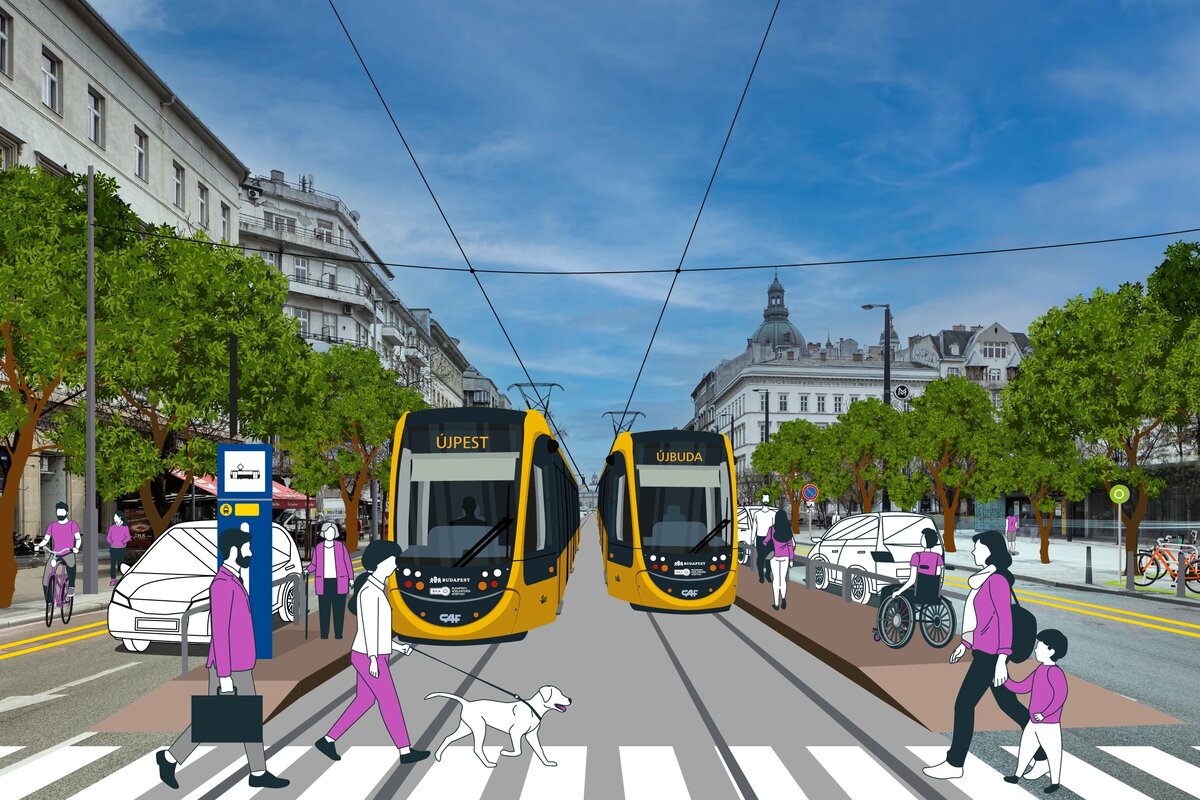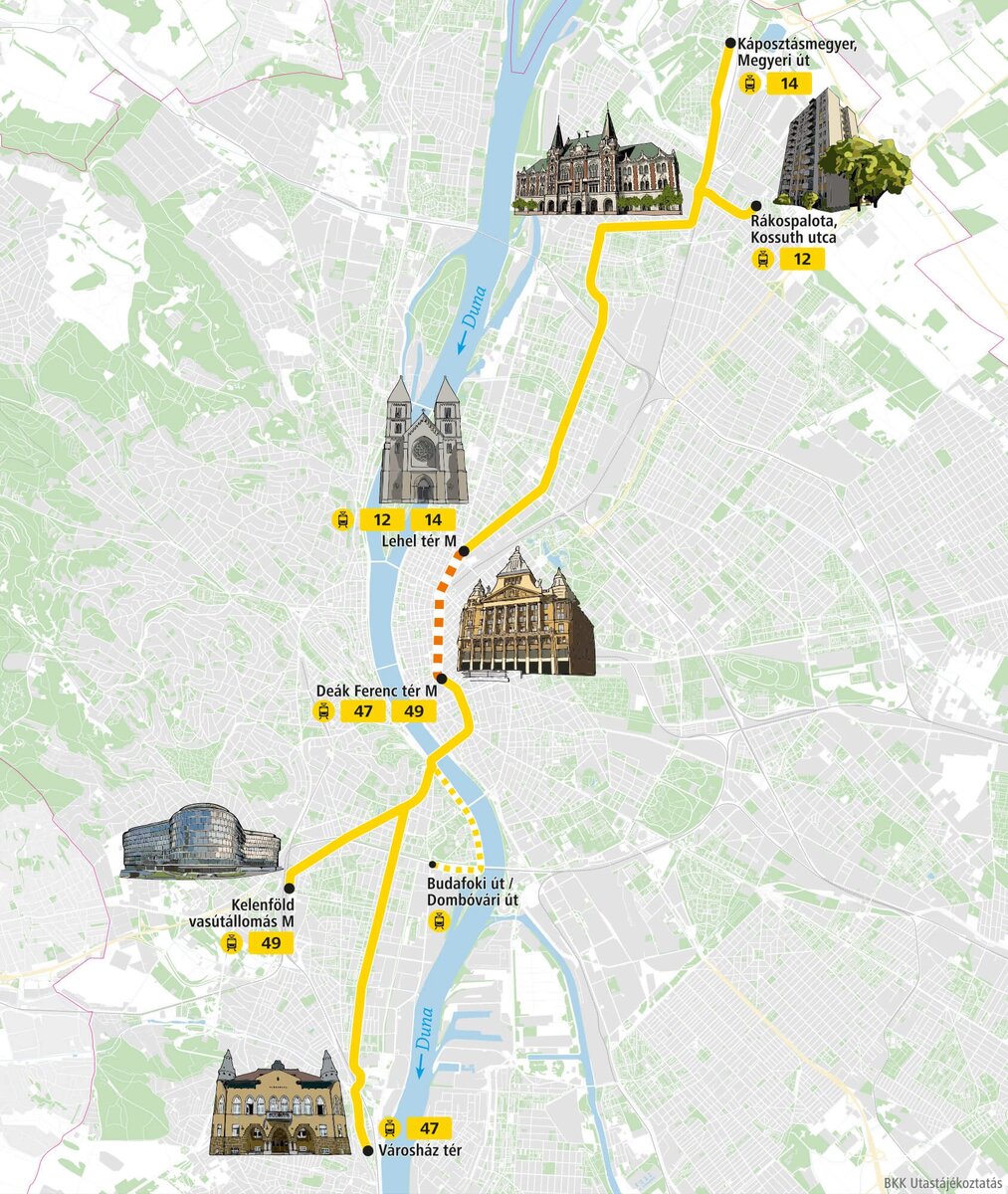Will crossing Budapest by tram without transfers no longer be a dream?

Change language:
Crossing Budapest by tram without transfers has been a desire of locals and tourists alike. For locals, it would make everyday life more convenient and for tourists, there would be a smaller chance of getting on the wrong tram. As it seems, this dream is not so out of reach anymore, as the tram project arrives at a new major milestone.
One step closer to crossing Budapest by tram
Turizmus reports that the second phase of the tram project has reached a major milestone with BKK initiating a conditional public procurement process for key developments. These include connecting the tram networks between North Pest and South Buda, rehabilitating Váci Road and Bajcsy-Zsilinszky Road, and renewing Nyugati Square. Once completed, the project will enable trams to run directly from Kelenföld and Budafok to Káposztásmegyer and Rákospalota. The new tracks between Deák Ferenc Square and Lehel Square will provide a continuous rail link between North Pest and South Buda, making it possible to cross Budapest by tram.
Here is BKK’s visual plan:

Plans for the tram project
The plans for the tram project include a nearly 2.2-kilometre tramway between Lehel Square and Deák Ferenc Square, along with the construction of accessible stops. Significant attention will be given to improving the surroundings of the new tram line and enhancing accessibility at various existing stops. The inner sections of Bajcsy-Zsilinszky Road and Váci Road will be redesigned, and Nyugati Square will undergo a complete reconstruction as part of the Revitalising Avenues programme. The current overpass at Nyugati Square will be demolished to create a barrier-free, people-oriented urban space. If public procurement and EU funding are secured, construction plans could be finalised by the second half of 2027.






